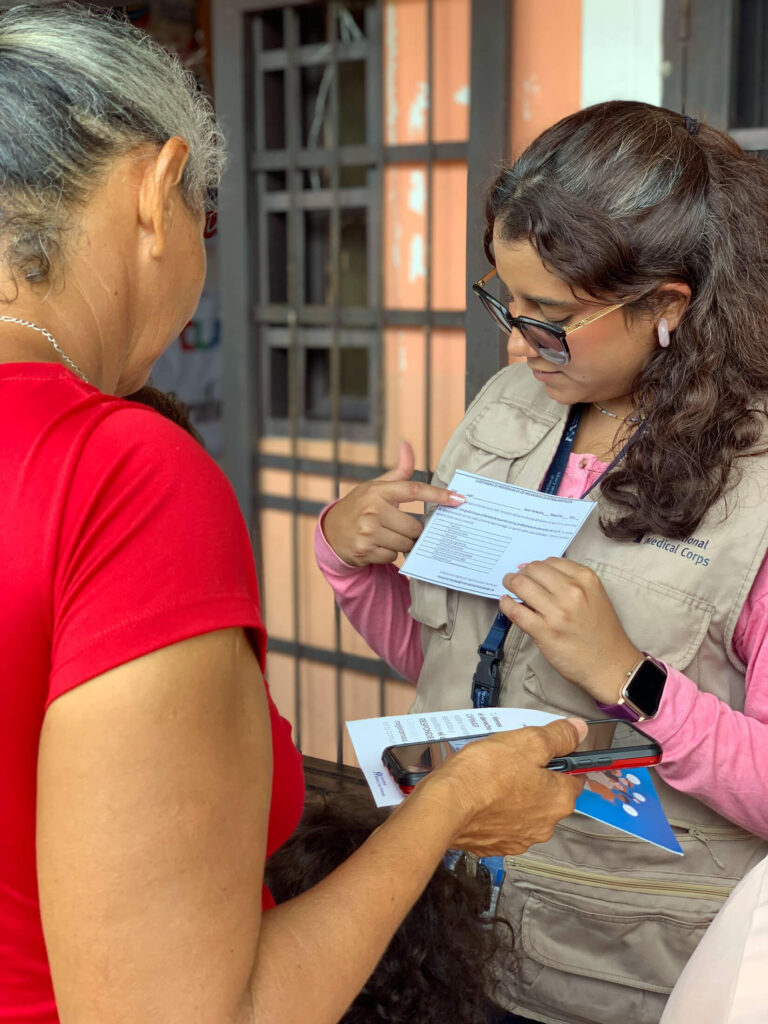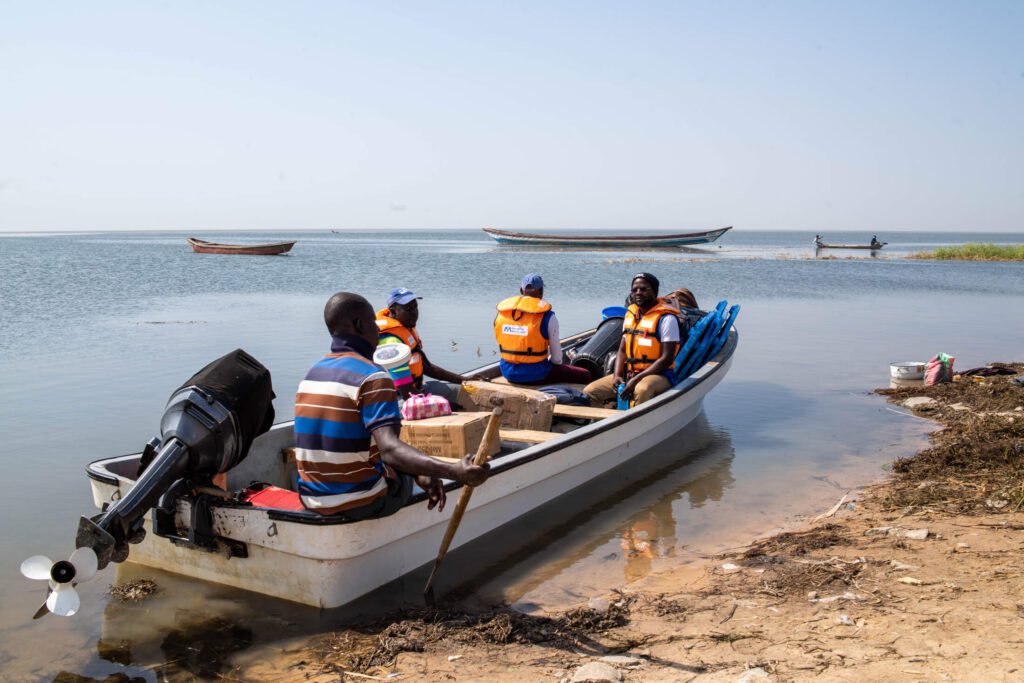Supporting Sudanese Refugees in Libya
The ongoing conflict in Sudan has displaced more than 11 million people, with more than 2 million seeking refuge in neighbouring countries. By the end of 2024, Libya hosted approximately 215,000 Sudanese refugees. In Kufra, hundreds of refugees arrive daily at informal camps—yet healthcare facilities remain severely understaffed, lacking essential medical professionals needed to meet the growing demands.


To address these gaps, International Medical Corps is working with local authorities to expand mental health services, recruit specialists, improve access to essential medications, raise awareness to reduce stigma and encourage people to seek care.



Since June 2024, we’ve provided essential healthcare, mental health support and protection services to refugees and host communities in Kufra. So far, we have conducted more than 18,500 health consultations, facilitated 220 patient referrals and delivered two large shipments of medical supplies to strengthen healthcare capacity. Our community health workers have also led 141 health awareness sessions, reaching thousands of people with critical information on hygiene, nutrition and disease prevention. With continued support, we will be able to continue addressing urgent health needs and strengthening healthcare services for those affected by this crisis.
Bringing Healthcare to Remote Communities in Cameroon
Since July 2024, severe flooding in Cameroon’s Far North region has affected more than 400,000 people, making it even harder for people to get food and healthcare. In response, International Medical Corps has sent mobile medical clinics to reach isolated communities. Every week, our teams travel by vehicle and boat to flood-affected areas, bringing essential medical supplies and working with local health workers to provide primary healthcare, nutrition screenings and medications.



Between September 2024 and February 2025, we held 45 mobile clinics, delivering free medical care to more than 14,400 people. Our services include consultations, vaccinations, malnutrition screenings and referrals for specialised care, with all costs covered. As the crisis continues, we remain committed to providing lifesaving healthcare to the most vulnerable communities in Cameroon.


Protecting Venezuelan Families from Dengue
International Medical Corps has been working in Venezuela to support communities facing health challenges, including the threat of mosquito-borne diseases like dengue. In a country where access to clean water and proper sanitation can be limited, dengue remains a serious public health concern. To help combat the spread of the disease, we distribute household dengue prevention kits to families in need.




Each kit includes essential items designed to reduce mosquito breeding and protect families from infection, including a mosquito-proof water storage bucket, a perforated bucket for water treatment, a filtration system and two long-lasting insecticide-treated mosquito nets. By improving water safety and providing mosquito protection, the kits help prevent dengue and reduce cases of other waterborne diseases.

Highlighting the Syrian Refugee Experience
March 2025 marks 14 years since the outbreak of civil war in Syria, a conflict that displaced more than 14 million people, including Mohammad Younis. Now 24, Mohammad was just 10 years old when war engulfed his hometown of Homs, forcing his family to flee. After weeks of travelling in fear, hunger, and exhaustion, they reached the Jordanian border, where they found safety—and the painful realisation that they might never return home. They settled in Azraq refugee camp, living in converted shipping containers without electricity or running water as they struggled to rebuild their lives.


Despite the hardships, Mohammad found purpose in photography, a passion ignited in childhood and nurtured in the refugee camp. His talent earned him a role with UNHCR, where he honed his humanitarian photography skills, capturing the experience—and resilience—of fellow refugees.




Now living in Amman, Mohammad works to support his family while pursuing his dream of using visual storytelling to amplify marginalised communities’ voices. As some Syrians consider returning home after recent political shifts, Mohammad hopes to resettle in a stable country where he and his family can build a secure future. Through his powerful images, he is already making an impact—sharing the untold stories of people displaced by war.
Providing Safe Spaces for Women and Girls in South Sudan
We always have been committed to supporting the safety and security of women and girls who face risks during and after a crisis. Women and girls are particularly vulnerable to violence in emergency settings, and violence against women and girls is a perpetual public-health and human-rights problem, affecting survivors’ physical and psychological health and the health and well-being of families and communities.


In South Sudan, women and girls face many challenges, including violence, displacement and limited opportunities for education and employment. To provide them with a safe and supportive environment, International Medical Corps helps to run women’s and girls’ safe spaces where they can come together, learn new skills to help support their families and find emotional support.


Learn more about International Medical Corps
Follow International Medical Corps on Facebook, Twitter, Instagram, LinkedIn, TikTok, Threads, Bluesky and YouTube.
Are you a journalist looking for information?
International Medical Corps is a global first responder that delivers emergency medical and related services to those affected by conflict, disaster and disease, no matter where they are, no matter the conditions. We also train people in their communities, providing them with the skills they need to recover, chart their own path to self-reliance and become effective first responders themselves. Established in 1984 by volunteer doctors and nurses, we are a nonprofit with no religious or political affiliation, and now have more than 8,000 staff members around the world, 96% of whom are locally hired. Since our founding, we have operated in more than 80 countries, and have provided more than $4.2 billion in emergency relief and training to communities worldwide.
Our staff includes experts in emergency medicine, infectious disease, nutrition, mental health, maternal and infant health, gender-based violence prevention and treatment, training, and water, sanitation and hygiene, all within the humanitarian context.
To arrange an interview on or off the record, contact our Media Relations team at media@internationalmedicalcorps.org.
